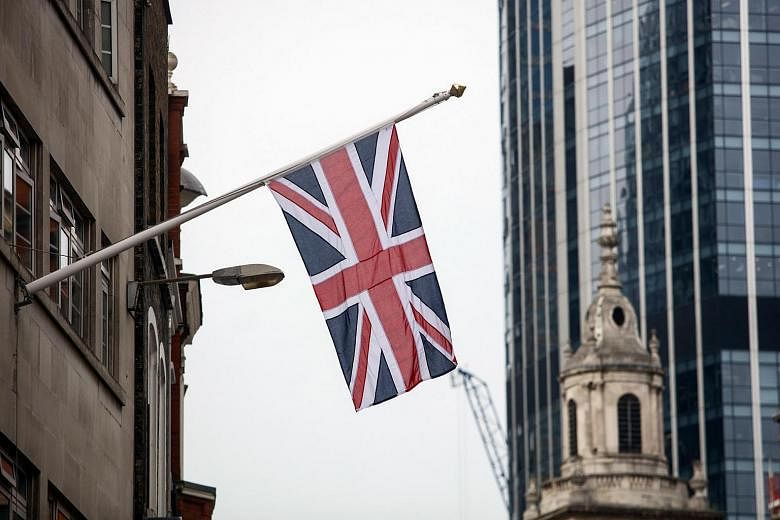ZURICH (Bloomberg) - Concern Britain will leave the European Union has wrought havoc in markets from Tokyo to Frankfurt and London. For Europe, the stress has reached levels not seen in almost a year.
As the Euro Stoxx 50 Index fell to its lowest level since February, a measure tracking the cost of hedging via options jumped to the highest since last July relative to a similar gauge for the US European equity markets, previously calm in comparison to surges in pound volatility, are joining in after recent polls showed a lead for the "Leave" campaign.
Traders are snapping up protection before the June 23 vote that could mark the first-ever flight from the union of European countries started in 1993. US Treasury Secretary Jacob J. Lew has warned of repercussions to the global economy, while Bank of England Governor Mark Carney has said it might lead to a U.K. recession. Equities would be the hardest hit among asset classes, and those from Europe could lose almost a quarter of their value in the immediate aftermath, according to risk- modeling firm Axioma Inc.
"There's a lot of fear in the markets at the moment," said Hilary Wakefield, head of portfolio management at EFG Asset Management in London. His firm manages $12 billion worldwide. "When you take a $3 trillion economy and put that into a period of negative growth, the impact on Europe is going to be quite meaningful. The US is in a substantial better shape to withstand shocks and surprises." Of the U.K.'s 10 biggest trade partners, seven are from the euro area. The US is the second-biggest after Germany.
The VStoxx Index surged 73 percent from its April low through Monday, including its biggest four-day jump since the August rout. The Chicago Board Options Exchange Volatility Index climbed 58 percent in the period, with the S&P 500 still within 2.5 percent of an all-time high.
To William Hobbs, head of investment strategy at the wealth-management unit of Barclays Plc, the recent surge in market risk looks exaggerated. While polls by ICM, ORB/Independent and YouGov Plc showed more voters are leaning toward an exit, the probability of Britain staying is more than 67 percent, according to Number Cruncher Politics and Oddschecker.
At the same time, the BOE has already started a series of extra market operations to boost bank funding around the referendum, while European Central Bank Governing Council member Ilmars Rimsevics said last week that his central bank is ready to offer euro liquidity via its existing agreements.
"People are now insulating portfolios against the worst- case scenario as polls indicate some momentum for the Brexit camp, but the European policy response is underestimated," Hobbs said from London. "It doesn't mean the sentiment can't swoon after, but the contribution of U.K.'s economy to world's capital markets is, in the end, limited. Europe looks better equipped than before to handle such a risk." Still, traders are growing pessimistic, with investors withdrawing money from the region's equity funds for 18 straight weeks, according to a Bank of America Corp. Merrill Lynch Global Research report last week. The cost of options protecting against losses in the Euro Stoxx 50 in the next three months has jumped to its highest level since September relative to bullish contracts.
"There's a lot of uncertainty about how it's going to impact the currencies and the economies, and that uncertainty is feeding into volatility," said Wakefield. "No one really knows how a Brexit would play out." -With assistance from Aleksandra Gjorgievska.

